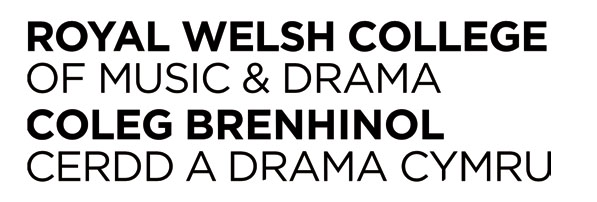
Tim Rhys-Evans is the director of music at RWCMD, a renowned choir master, founder of The Aloud Charity, and in 2013 he was awarded an MBE for services to music. He's a passionate advocate for wellbeing in the music industry and his award-winning 2016 BBC documentary, All in the Mind, explored his experience of mental health breakdown, depression and suicide.
Music can be everything
It was only when I was in hospital and the clinical psychologist asked me about my hobbies that it became glaringly obvious that I didn't have one anymore – it had always been music. In the last 30 years, I hadn't realised that nothing had filled the space where music had been.
If you're doing something you love and care passionately about, whether that's music or teaching, it's easy to be entirely defined by what you do and to stop seeing the person beneath. It's so important to make sure that you do something mindful that feeds you creatively and spiritually and has nothing within it that makes you think about work. I took up sewing and running.
Beware of perfectionism
Musicians are trained to strive for perfection, to give the flawless performance or create the perfect work. This is very dangerous; there are great performances, of course, but it's those ‘flaws’ that give a piece its personality and make it truly yours.
In my case, in childhood music was my escape from difficulties; the piano was always there for me, I was good at it, and I could lose myself in it. But it also became an excuse not to go out and play with other kids, enabling me to keep myself in my comfort zone and avoid betraying myself. The piano was my solace and my crutch.
The more you invest in music the better you get, but it can lead to complications. I was getting adulation and compliments. I couldn't get enough of it – it gave me incredible confidence in my ability. But I also got sucked into the vortex; it drew me away from other people, so I didn't gain in social confidence. I needed to find a balance.
Only Boys Aloud
Knowing there were boys out there like me, I created Only Boys Aloud, originally an offshoot of Only Men Aloud. Our aim was to engage a new generation of young people with the power of choral singing, promoting self-belief and self-confidence, encouraging aspiration, building skills, and developing a sense of community.
As all music teachers know, music can be a great leveller, particularly those disciplines which are more easily accessible such as singing or drumming. The power of music to be without prejudice or linked to academic ability makes it a great confidence booster.
Often there's only one boy in the school choir, one boy in a community who wants to be involved in classical music without fear of reprisal or being judged – that's where Only Boys Aloud came in. It was a space where they could be introduced to singing and music in a non-threatening way, with no charge, no audition, and no need for an instrument. The vast majority of children involved with these kinds of choirs aren't musicians and often haven't even thought about singing before. But they get stuck in and soon realise that doing it regularly leads to improvement, so they start to let themselves go and have great fun. And famously, singing releases the same endorphins as eating chocolate – it's a feel-good activity, taking in more oxygen and making you feel good.
New music undergraduate course at RWCMD
We've recently updated our music undergraduate course at RWCMD to ensure that as well as training musicians for the future, we're also nurturing their wellbeing.
Percussion and movement fulfil the same needs as singing, which is why it's now compulsory for all our first- and second-year music students to meet together to sing, move, and create percussive music every week as part of our Integrated Musician module. Our students develop their skills in musicianship, rhythm, and sense of pitch, but it's also a big part of their mental health, coming together as a year group, highlighting the social side of music making.
We also want to train healthy and happy musicians who can go out and make a difference to society through their art. We're not just about training students for jobs – we want to facilitate a fundamental shift in how they develop creativity and identify as artists. So, our new courses also embed community work, creative collaboration, and entrepreneurship, working with each musician to reach their own artistic and personal potential to become flexible, self-generating, and healthy creators that will contribute, and thrive, in the challenges of the contemporary industry.









